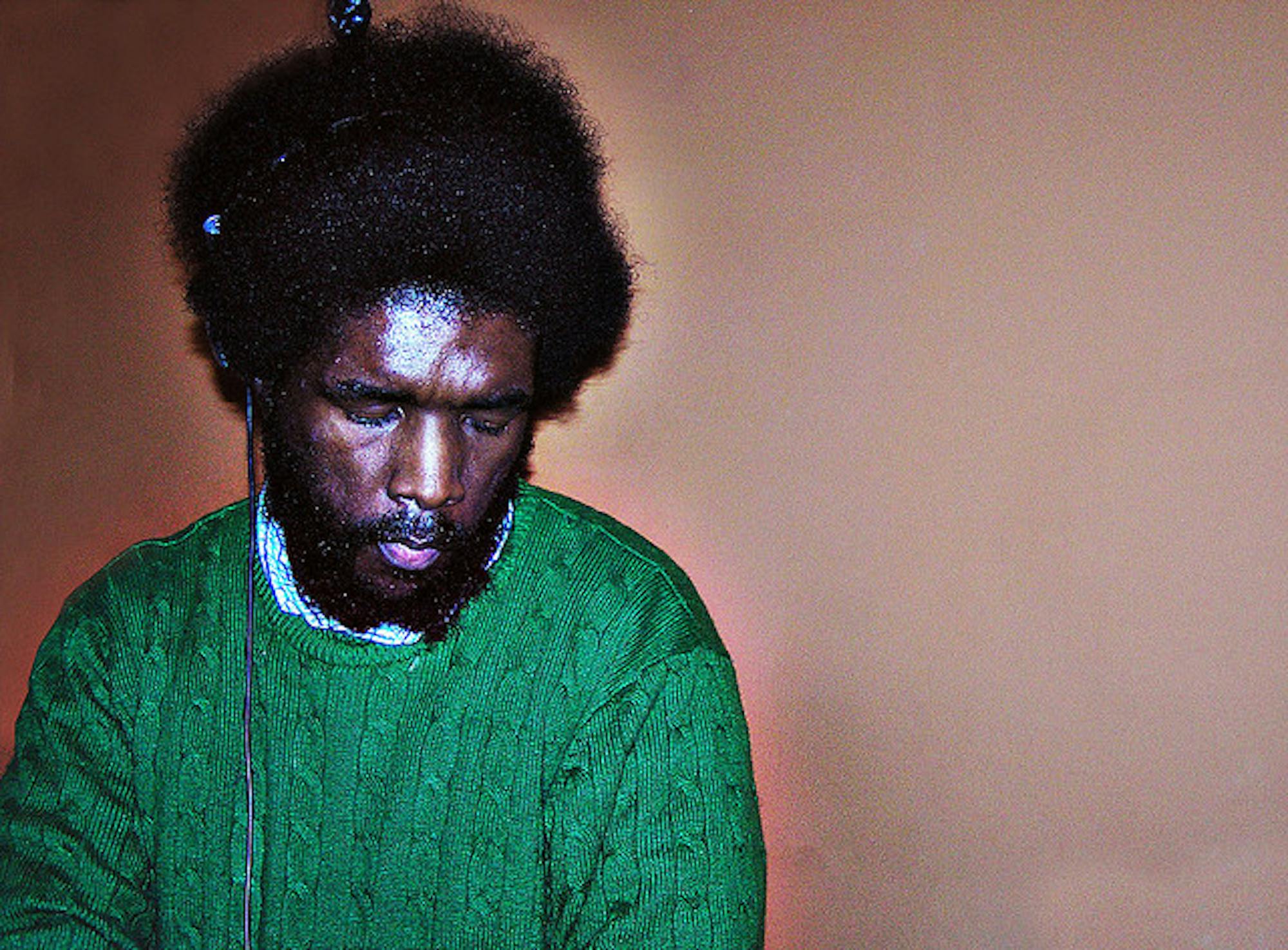“I urge and challenge musicians and artists alike to push themselves to be a voice of the times that we live in.”
Ahmir Khalib Thompson, aka Questlove, drummer for the Roots, posted the above sentiment last week to his Instagram account as part of a lengthy caption underneath a photo of a person's silhouette centered in the crosshairs of a gun. In light of the recent decisions not to indict the police officers who killed Eric Garner and Michael Brown, Questlove eloquently urged action from not only the hip hop nation, but “ALL artists” to produce “songs with spirit in them,” “songs with solutions” and “songs with questions" to mobilize social change.
Music and protests have gone hand-in-hand for decades, from Woody Guthrie's guitar boasting that "This Machine Kills Fascists" in the 1940s to Bob Dylan's 1964 album "The Times They Are A-Changin'" to N.W.A.'s "F**k tha Police" (1988), which became critical in the early '90s after the Rodney King beating. So where have the voices of musicians, rappers and artists been in the responses and recent protests that have taken the streets of almost every major city in the past week?
According to Questlove, hip-hop hasn't been active enough about Ferguson. On the other hand, in the weeks after Michael Brown's death, J. Cole quickly released "Be Free" (2014), a somber elegy for Brown featuring testimony from Dorian Wilson, Brown's friend and witness to his death. With its release, Cole posted an accompanying caption on SoundCloud. An excerpt of the caption reads, "Rest in Peace to Michael Brown and to every young black man murdered in America,whether by the hands of white or black." Cole has also attended several protests regarding the situation in Ferguson.
Another artist, Michael Render, known better as Killer Mike of hip-hop group Run The Jewels, has been quite outspoken regarding the situation in Ferguson and the Eric Garner decision. He even co-authored an op-ed denouncing the use of rap lyrics as evidence in criminal courts. Shortly after Brown's death, Killer Mike posted a photo to his Instagram account of Michael Brown's mother and stepfather, saying in a longer caption, "I care that we as humans care as much about one another more. I care we see past Class [sic], race and culture and honor the humanity that unites our species."
After appearing on CNN this summer, Render also made an emotional speech before a show in St. Louis just after the decision not to indict officer Darren Wilson.
"These motherf**kers got me today ... It is not about race. It is not about class. It is not about color. It is about what they killed him for. It is about poverty. It is about greed. And it is about a war machine. It is about a war machine that uses you as a battery," Render said.
While Killer Mike has emerged as a strong, powerful voice for change in the hip-hop community, The Wu-Tang Clan recently released a music video capturing the sentiments around the country in its video for "A Better Tomorrow," (2014) a track off of its recent reunion album of the same name. The video doesn't visually feature any members of Wu-Tang, but instead opens with footage of President Obama's speeches regarding the killings and continues with protests around the country. The track is mixed with protesters' chants of "I Can't Breathe," and closes with a list of names of people killed by police officers while unarmed from the past decade, ending with the statement and follow-up question, "This is not all of the names. WHEN WILL IT END?" With the videos' release, the group wrote, "This visual was created by Wu-Tang Clan in the hopes of inspiring change and promoting unity throughout the world."
Clearly, artists like Killer Mike and the Wu-Tang Clan have made sure their voices are being heard, yet some have questioned artists with even greater visibility -- like Eminem and Kanye West -- for their silence at such a tumultuous time in the United States.
"Kanye West has 11 million followers on Twitter," writer Alvin Aqua Blanco published on Hip-Hop Wired on Dec. 4. "Combine that with the fact that there are Yeezy devotees who hang on to his every word as gospel ... him speaking up about Eric Garner or Mike Brown could potentially spark more people to at least be aware of the volatility of what’s happening as opposed to looking past it as another blip in the news cycle."
So the question remains: Will artists incite the change for which Questlove has urged so strongly, calling for "New Dylans. New PublicEnemys. New Simones. New De La Roachas" and "New ideas!"? Will more artists, beyond J. Cole and The Wu-Tang Clan, produce work that taps into the present abundance of energy in the country for social change? Or instead will musicians, beyond a limited few in the hip hop community, remain quiet, missing a gravely important opportunity to lead a movement?
Some hip-hop artists speak out, others stay silent over Brown, Garner decisions

Ahmir Khalib Thompson, known as Questlove, is promoting awareness of social justice issues.





